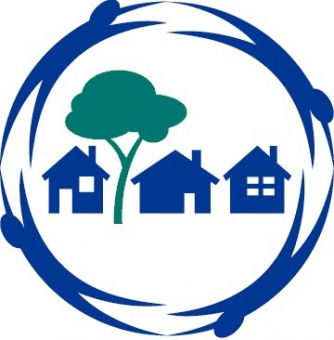- Education Topics
- Achievement Gap
- Alternative Education
- American Education Awards
- Assessment & Evaluation
- Education during COVID-19
- Education Economics
- Education Environment
- Education in the United States during COVID-19
- Education Issues
- Education Policy
- Education Psychology
- Education Scandals and Controversies
- Education Reform
- Education Theory
- Education Worldwide
- Educational Leadership
- Educational Philosophy
- Educational Research
- Educational Technology
- Federal Education Legislation
- Higher Education Worldwide
- Homeless Education
- Homeschooling in the United States
- Migrant Education
- Neglected/Deliquent Students
- Pedagogy
- Sociology of Education
- Special Needs
- National Directories
- After School Programs
- Alternative Schools
- The Arts
- At-Risk Students
- Camps
- Camp Services
- Colleges & Universities
- Counties
- Driving Schools
- Educational Businesses
- Financial Aid
- Higher Education
- International Programs
- Jewish Community Centers
- K-12 Schools
- Language Studies
- Libraries
- Organizations
- Preschools
- Professional Development
- Prom Services
- School Assemblies
- School Districts
- School Field Trips
- School Health
- School Supplies
- School Travel
- School Vendors
- Schools Worldwide
- Special Education
- Special Needs
- Study Abroad
- Teaching Abroad
- Volunteer Programs
- Youth Sports
- For Schools
- Academic Standards
- Assembly Programs
- Blue Ribbon Schools Program
- Educational Accreditation
- Educational Television Channels
- Education in the United States
- History of Education in the United States
- Reading Education in the U.S.
- School Grades
- School Meal Programs
- School Types
- School Uniforms
- Special Education in the United States
- Systems of Formal Education
- U.S. Education Legislation
- For Teachers
- Academic Dishonesty
- Childcare State Licensing Requirements
- Classroom Management
- Education Subjects
- Educational Practices
- Interdisciplinary Teaching
- Job and Interview Tips
- Lesson Plans | Grades
- Professional Development
- State Curriculum Standards
- Substitute Teaching
- Teacher Salary
- Teacher Training Programs
- Teaching Methods
- Training and Certification
- For Students
- Academic Competitions
- Admissions Testing
- At-Risk Students
- Career Planning
- College Admissions
- Drivers License
- Educational Programs
- Educational Television
- High School Dropouts
- Higher Education
- School Health
- Senior Proms
- Sex Education
- Standardized Testing
- Student Financial Aid
- Student Television Stations
- Summer Learning Loss
SCI Social Capital Inc.

Basic Information
Address: 165M New Boston St., Woburn MA 01801
Phone Number: 781-935-2244
Email: mobrien@socialcapitalinc.org
Director: David Crowley
Action Shots
* There are currently no photos associated with this listing.
Additional Information
Causes Served: Community, health and wellness, youth leadership and development
Clearances Required: No
Population Served: All
Ages for Volunteer: Any
Mission Statement:
Founded in 2002, SCI’s mission is to strengthen communities by connecting diverse individuals and organizations through civic engagement initiatives. We envision a nation where individuals are strongly connected to their neighbors and play an active role in shaping the destiny of their communities. This increase in ‘social capital’ will result in communities that are safer, healthier and more vital.
Program History:
SCI Founder David Crowley had over ten years of leadership experience in the nonprofit sector prior to starting SCI. In recent years, he had been thinking about the tendency of the nonprofit sector to be better at developing programs that focus narrowly on a particular issue, rather than developing effective strategies for addressing the interconnected nature of social problems. In addition, he was troubled by data showing that while youth volunteerism has risen, political participation rates among young adults remain disturbingly low.
With these issues in mind, David read Bowling Alone by Robert Putnam and was struck by the potential of using the concept of social capital as the primary organizing framework for building community and increasing civic engagement. He finished reading the book on a flight to San Francisco, and was so anxious to do something about the decline of social capital described by Putnam that he was ready to jump off the plane to get started...he waited, but not for long.
At the same time David was reading Bowling Alone, he and his wife, Jodi, had recently bought a home in Woburn, where David grew up. The process of reconnecting to his home community after some 12 years of living elsewhere provided tangible examples of barriers to building social capital in today’s society, but also suggested that there were many community assets that could be harnessed through collaborative, community-wide social capital building initiative. The basic idea of developing a local model that could be replicated in order to address the decline of social capital and civic engagement was born.
Early years:
David began informal discussions with people about the concept for SCI in 2001. The first formal SCI community planning session was held in January 2002 in Woburn, followed by six months of planning work. The first SCI Woburn programming became operational in the summer of 2002. After a highly successful first year of programming in Woburn, in 2003 SCI began to develop plans to expand to communities throughout the Boston area, with the Boston Globe Foundation as the lead funder for this expansion. A partnership was established with the Health Services Partnership of Dorchester in March 2004 to create the first SCI expansion site, SCI Dorchester. In 2006, SCI began work in Lynn, opening an office there in early 2007.
Events:
We are currently looking for volunteers for a number of projects - WorldFest 2017, the Horn Pond Summer Concert Series, our SCI Social Capitalist Luncheon & various volunteer commitments throughout the Woburn community.

